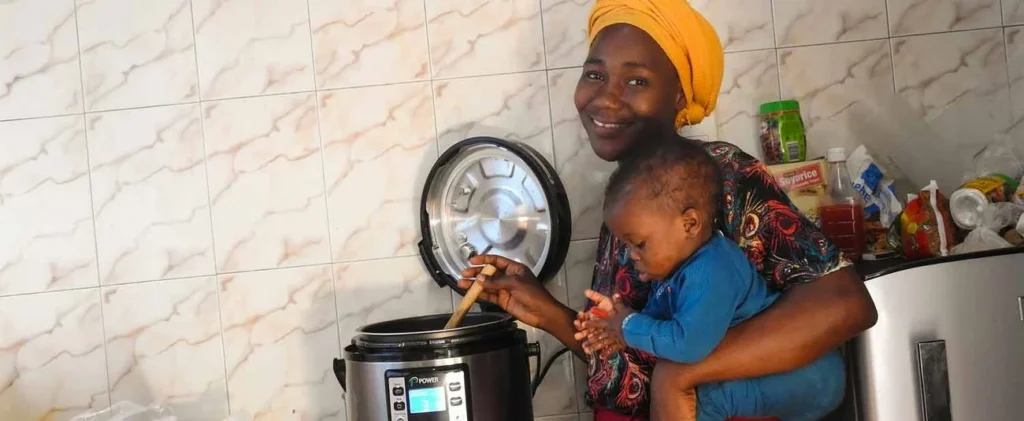AfDB Approves $8.79 Million to Expand Clean Cooking Access in Uganda
The African Development Bank (AfDB) has approved $8.79 million in funding to accelerate clean cooking solutions across Uganda under the Uganda Biogas and Electric Cooking Project (UBEP), a transformative initiative aimed at reducing the country’s reliance on unsustainable biomass fuels.
Currently, over 89% of Ugandans depend on wood and charcoal for cooking, a practice that has driven alarming rates of deforestation and indoor air pollution. The AfDB-backed UBEP initiative is set to reverse this trend by introducing biogas plants, electric cooking appliances, and technical training programs that promote sustainable practices and reduce harmful emissions.
“The Uganda Biogas and Electric Cooking Project is a major milestone to help reduce the estimated half a million early deaths of women and children across Africa annually due to pollution from open fires,” said Josephine Ngure, the Bank’s Country Manager for Uganda.
UBEP is one of AfDB’s largest public-sector clean cooking programs and is aligned with Uganda’s Vision 2040, Energy Transition Plan, and its updated Nationally Determined Contribution (NDC) under the Paris Agreement. The initiative comprises four key components:
- Biogas Infrastructure: Construction of 47 institutional biogas plants targeting schools, markets, and farming communities, expected to cut fuelwood and charcoal use by 50%.
- Electric Cooking Devices: Distribution of 77,000 affordable e-cooking appliances to urban households to fast-track adoption.
- Market Development: Support for standards, repair networks, and distribution systems to build a robust e-cooking ecosystem.
- Training and Technical Assistance: Capacity building for SMEs, technicians, and implementing agencies to ensure scalability and sustainability.
Funding is primarily sourced from the African Development Fund’s Climate Action Window, with co-financing from the UK Foreign, Commonwealth and Development Office and the Government of Uganda.
The project is expected to significantly enhance indoor air quality, curb deforestation, and promote climate resilience. By reducing the need for firewood collection, UBEP will also empower women and girls with more time for education and income-generating activities.
“By promoting electric cooking methods, the Bank is supporting Uganda’s goal of achieving an 18% national e-cooking adoption rate by 2030,” Ngure added.
The project will also generate positive environmental spillovers, including ecosystem restoration and improved agricultural productivity through nutrient-rich byproducts from biogas production.
With its holistic design and strong alignment with national and regional climate goals, the Uganda Biogas and Electric Cooking Project stands as a powerful blueprint for sustainable development and energy transition across Africa.



